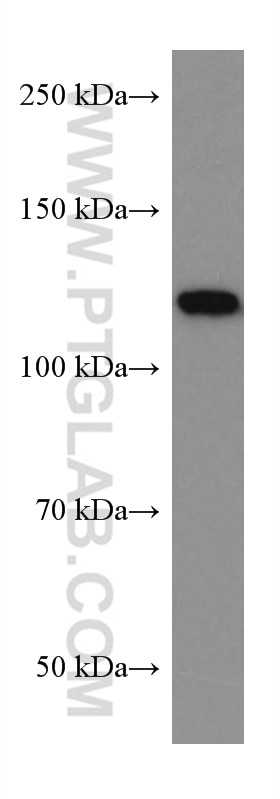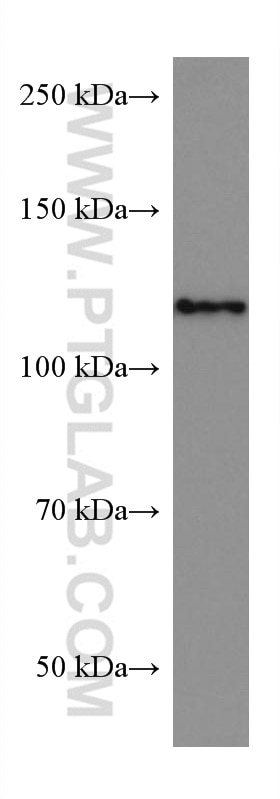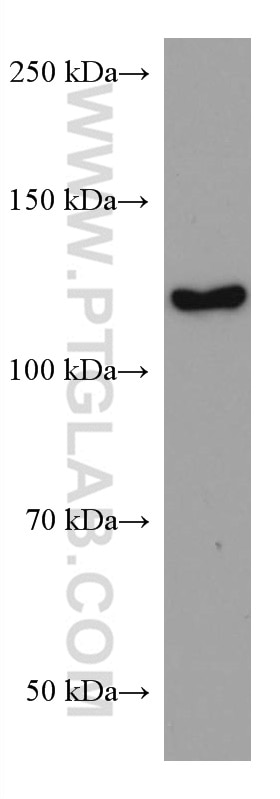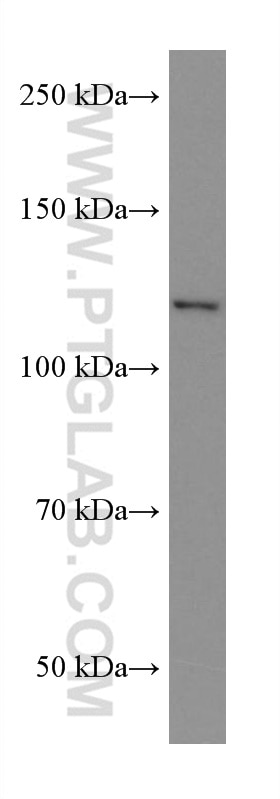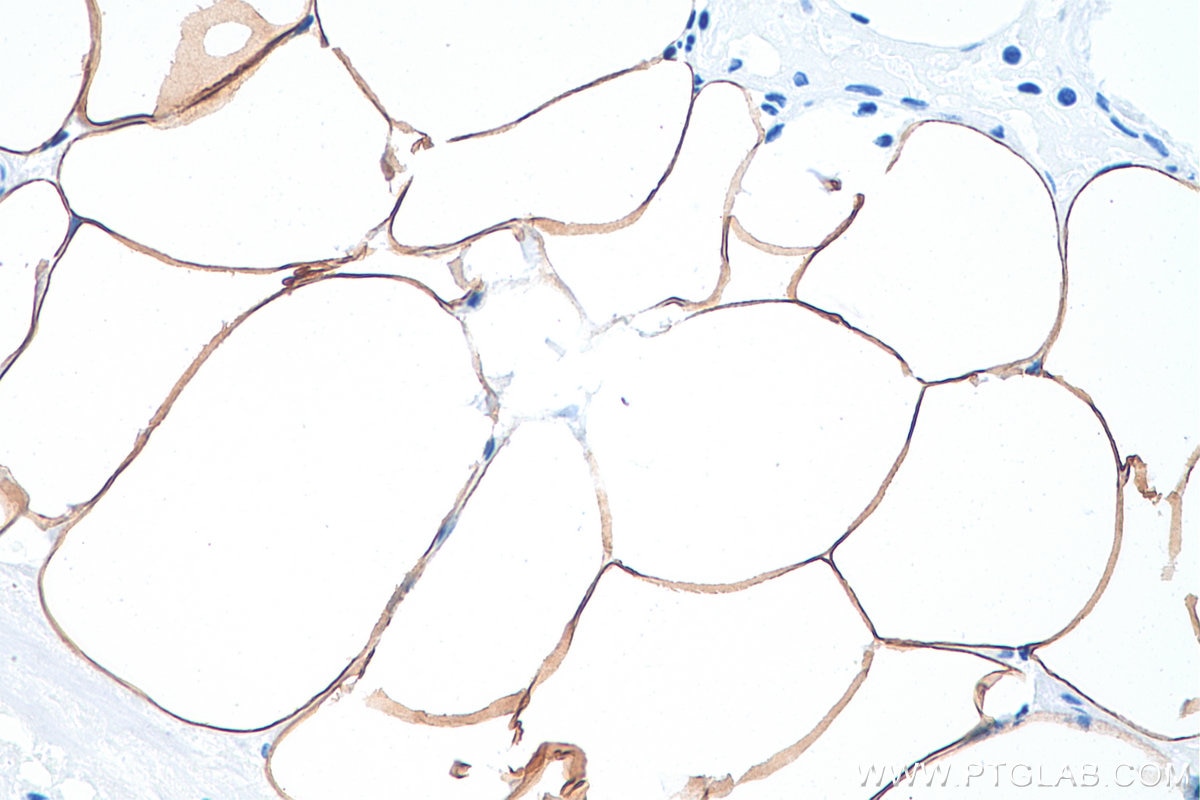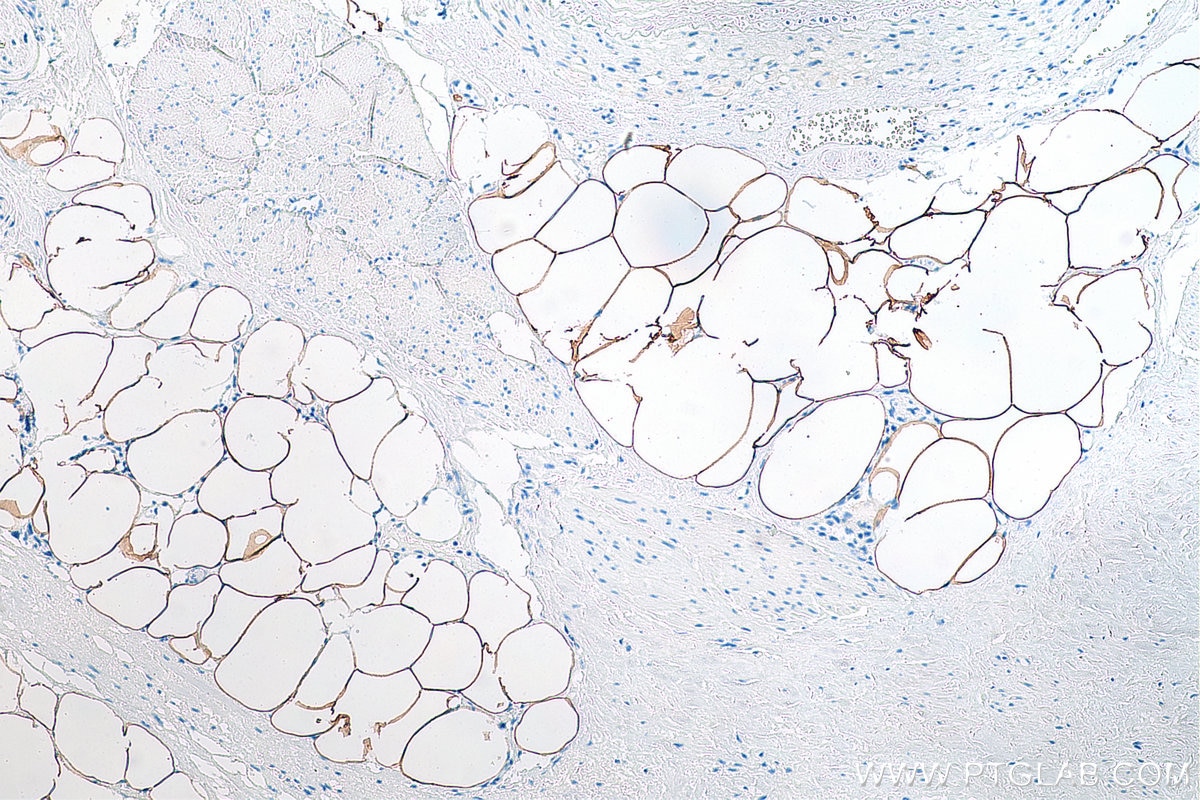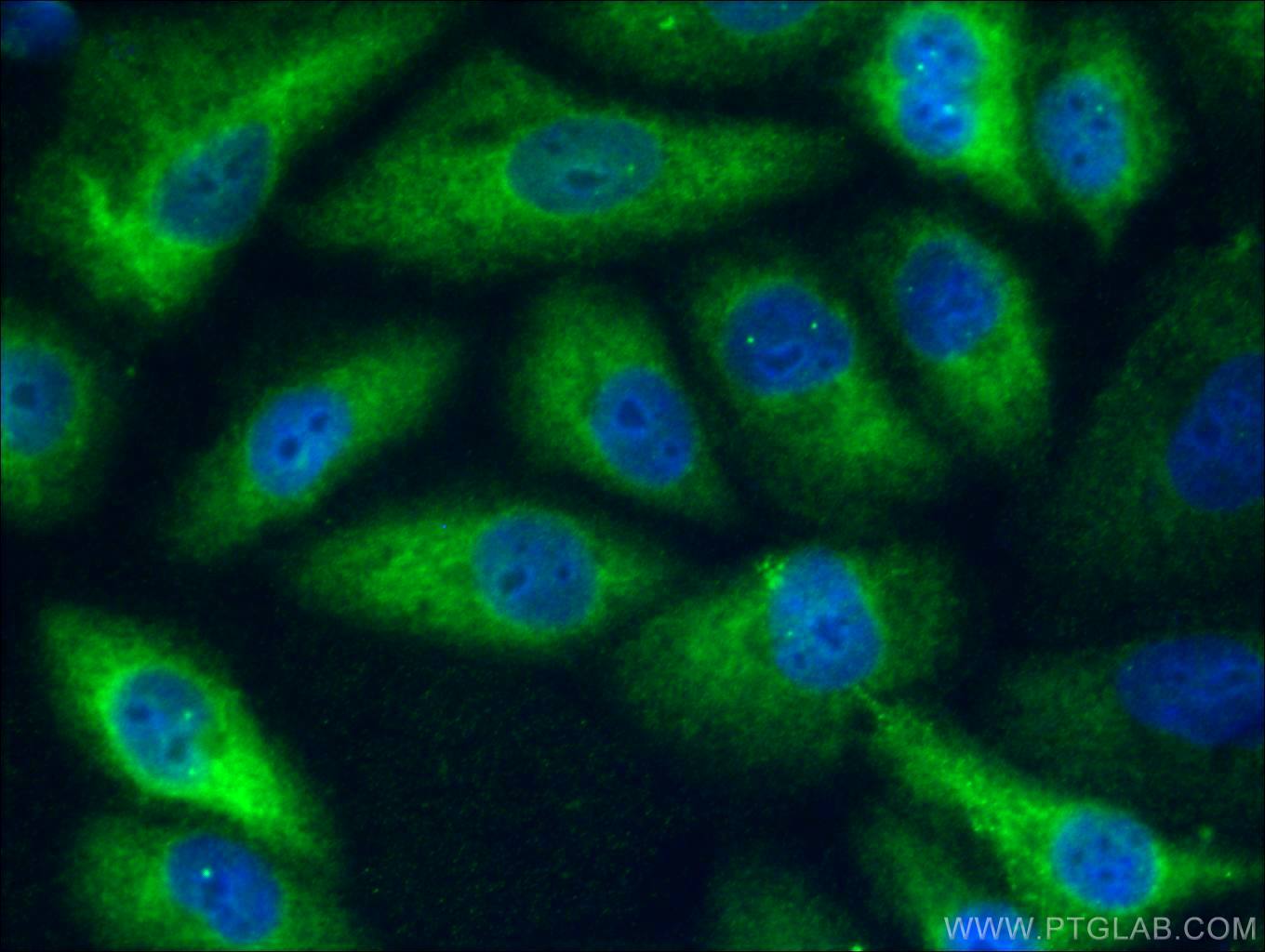Anticorps Monoclonal anti-ACLY
ACLY Monoclonal Antibody for IF, IHC, WB, ELISA
Hôte / Isotype
Mouse / IgM
Réactivité testée
Humain, rat, souris
Applications
WB, IP, IHC, IF, ELISA
Conjugaison
Non conjugué
CloneNo.
1E10D5
N° de cat : 67166-1-Ig
Synonymes
Galerie de données de validation
Applications testées
| Résultats positifs en WB | cellules Jurkat, cellules HSC-T6, cellules MCF-7 |
| Résultats positifs en IHC | tissu de cancer de la prostate humain, il est suggéré de démasquer l'antigène avec un tampon de TE buffer pH 9.0; (*) À défaut, 'le démasquage de l'antigène peut être 'effectué avec un tampon citrate pH 6,0. |
| Résultats positifs en IF | cellules A549, |
Dilution recommandée
| Application | Dilution |
|---|---|
| Western Blot (WB) | WB : 1:1000-1:10000 |
| Immunohistochimie (IHC) | IHC : 1:1000-1:4000 |
| Immunofluorescence (IF) | IF : 1:50-1:500 |
| It is recommended that this reagent should be titrated in each testing system to obtain optimal results. | |
| Sample-dependent, check data in validation data gallery | |
Applications publiées
| WB | See 5 publications below |
| IF | See 1 publications below |
| IP | See 1 publications below |
Informations sur le produit
67166-1-Ig cible ACLY dans les applications de WB, IP, IHC, IF, ELISA et montre une réactivité avec des échantillons Humain, rat, souris
| Réactivité | Humain, rat, souris |
| Réactivité citée | rat, Humain, souris |
| Hôte / Isotype | Mouse / IgM |
| Clonalité | Monoclonal |
| Type | Anticorps |
| Immunogène | ACLY Protéine recombinante Ag7709 |
| Nom complet | ATP citrate lyase |
| Masse moléculaire calculée | 121 kDa |
| Poids moléculaire observé | 120 kDa |
| Numéro d’acquisition GenBank | BC006195 |
| Symbole du gène | ACLY |
| Identification du gène (NCBI) | 47 |
| Conjugaison | Non conjugué |
| Forme | Liquide |
| Méthode de purification | Purification par protéine A |
| Tampon de stockage | PBS avec azoture de sodium à 0,02 % et glycérol à 50 % pH 7,3 |
| Conditions de stockage | Stocker à -20 ℃. L'aliquotage n'est pas nécessaire pour le stockage à -20oC Les 20ul contiennent 0,1% de BSA. |
Informations générales
ACLY(ATP-citrate synthase) is also named as ACL. It is the primary enzyme responsible for the synthesis of cytosolic acetyl-CoA. ACLY serves as not only a target in oxygenated cells for suppression of lipid synthesis and histone acetylation, but also as a susceptible target in hypoxic cells to restore inhibition of glycolysis. In nonsmall cell lung carcinoma and hepatocellular carcinoma, ACLY is overexpressed compared with normal parenchyma suggesting that ACLY may represent a common target among highly malignant tumors(PMID:19795461). This protein has 2 isoforms produced by alternative splicing.
Protocole
| Product Specific Protocols | |
|---|---|
| WB protocol for ACLY antibody 67166-1-Ig | Download protocol |
| IHC protocol for ACLY antibody 67166-1-Ig | Download protocol |
| IF protocol for ACLY antibody 67166-1-Ig | Download protocol |
| Standard Protocols | |
|---|---|
| Click here to view our Standard Protocols |
Publications
| Species | Application | Title |
|---|---|---|
Molecules The Different Mechanisms of Lipid Accumulation in Hepatocytes Induced by Oleic Acid/Palmitic Acid and High-Fat Diet | ||
Mediators Inflamm The Mutual Inhibition of FoxO1 and SREBP-1c Regulated the Progression of Hepatoblastoma by Regulating Fatty Acid Metabolism. | ||
Cell Death Dis ARHGEF3 regulates the stability of ACLY to promote the proliferation of lung cancer | ||
iScience TRPV4 enhances the synthesis of fatty acids to drive the progression of ovarian cancer through the calcium-mTORC1/SREBP1 signaling pathway | ||
Antioxidants (Basel) 17β-Estradiol (E2) Upregulates the ERα/SIRT1/PGC-1α Signaling Pathway and Protects Mitochondrial Function to Prevent Bilateral Oophorectomy (OVX)-Induced Nonalcoholic Fatty Liver Disease (NAFLD) |
Avis
The reviews below have been submitted by verified Proteintech customers who received an incentive forproviding their feedback.
FH Domenico (Verified Customer) (10-26-2022) |
|
